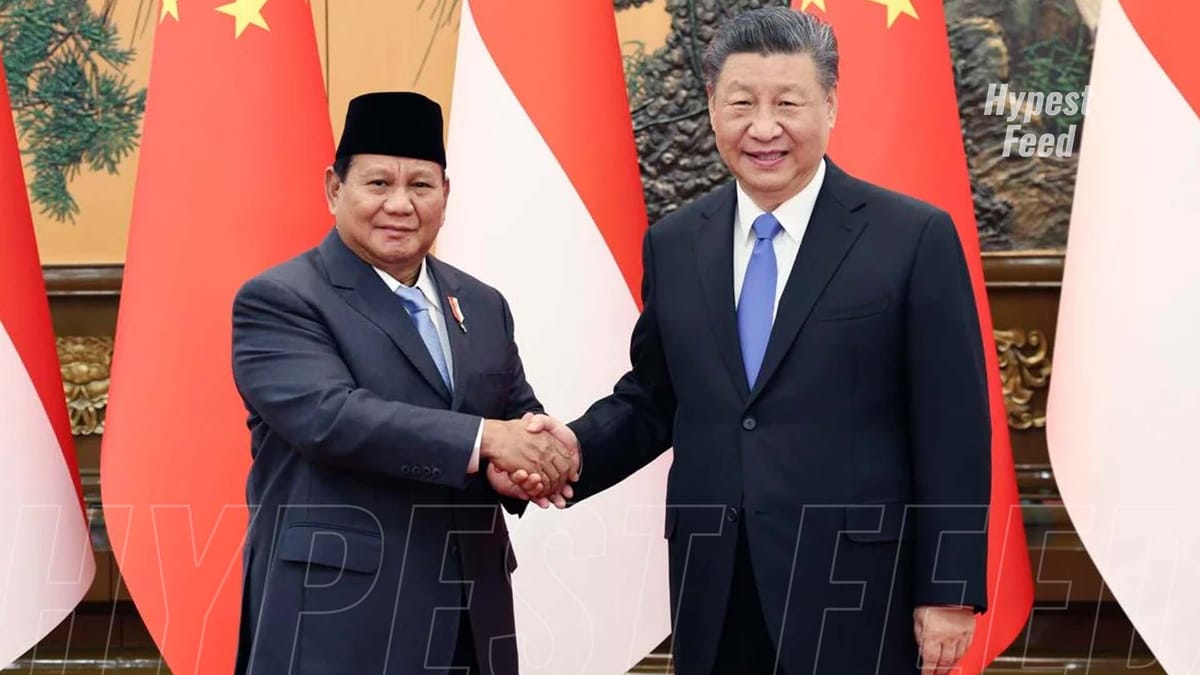BEIJING (AP) — Indonesian President-elect Prabowo Subianto reaffirmed Indonesia's friendly stance towards China during his meeting with Chinese leader Xi Jinping in Beijing on Monday. Subianto, set to succeed Joko Widodo in October, chose Beijing for his inaugural official visit post-election victory in February, underscoring the nations' robust ties amidst escalating tensions in the South China Sea.
His subsequent visit to Japan signals Indonesia's intent to maintain a balanced approach between China and U.S. allies like Japan and the Philippines. Subianto lauded China as Indonesia's "strong cooperative partner," vowing to uphold Widodo's cordial approach and bolster collaboration in economic, trade, and poverty-alleviation domains. Scheduled meetings with Chinese Premier Li Qiang and Defense Minister Dong Jun further highlight Subianto's diplomatic agenda.
China, having emerged as Indonesia's largest trading partner during Widodo's tenure, has invested significantly in crucial infrastructure ventures, including the Jakarta-Bandung high-speed railway and the Cirata floating solar power project. Xi Jinping hailed the Jakarta-Bandung railway as emblematic of Sino-Indonesian cooperation and expressed China's commitment to deepen maritime ties and support Indonesia in poverty alleviation efforts.
Indonesia's neutral stance amid escalating China-Philippines tensions underscores its strategic diplomacy, as the Philippines reverts to a more pro-U.S. stance under President Ferdinand Marcos Jr. China-Philippines maritime confrontations raise concerns of broader conflict, potentially impacting China-U.S. relations.
The United States has reiterated its commitment to defend the Philippines, its longstanding treaty ally in Asia, in the event of any armed attack against Filipino forces, ships, or aircraft, particularly in the disputed South China Sea region. This pledge underscores the significance of the U.S.-Philippines alliance in maintaining regional security amidst escalating tensions.
The South China Sea remains a contentious area with overlapping territorial claims by China, the Philippines, Vietnam, Malaysia, Taiwan, and Brunei, all vying for control over its abundant resources and strategic maritime routes. Notably, Beijing has vehemently rejected a landmark 2016 international arbitration ruling that nullified its expansive claims in the region, citing historical rights.
The persistence of conflicting claims and China's refusal to abide by the arbitration ruling have heightened tensions in the South China Sea, raising concerns about potential military confrontations and the destabilizing impact on regional stability. The U.S. warning serves as a deterrent against any aggression that may disrupt peace and security in the disputed waters, reaffirming its commitment to uphold international law and the principles of freedom of navigation and overflight in the region.



Member discussion: